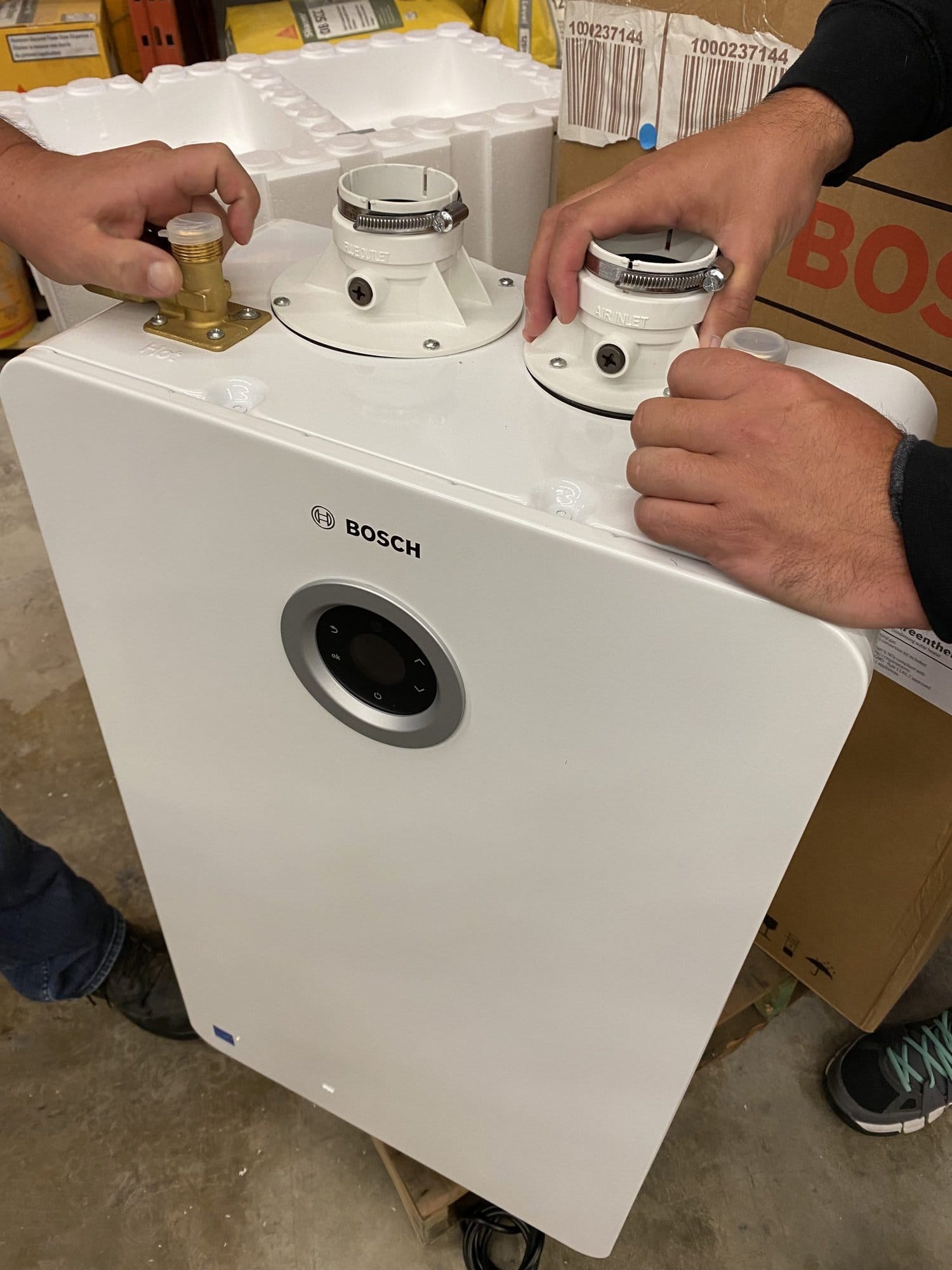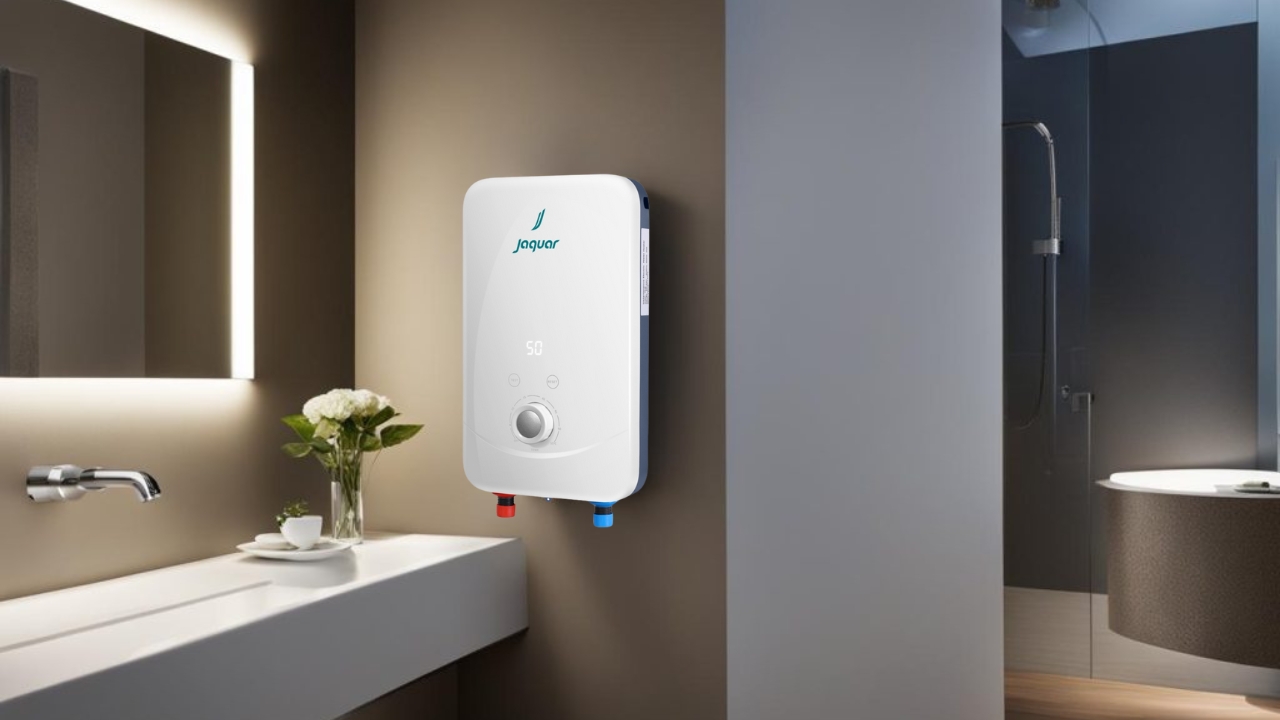The article author is making several good annotation on Why You Should Consider a Tankless Water Heater in general in this great article further down.

In a world where ease and effectiveness reign supreme, it's not a surprise that property owners are frequently in search of smarter methods to handle their home's power consumption and convenience. One development that has progressively obtained popularity is the tankless hot water heater. Yet what exactly makes these systems attract attention from the traditional tank-based versions most of us grew up with? Allow's dive in and discover the benefits of tankless water heaters, aiding you decide if it's time to make the button in your home.
Introduction
Picture this: you step into the shower after a lengthy day, anticipating a soothing cascade of hot water, only to be greeted by icy droplets due to the fact that the last person used it all up. Sound familiar? Traditional water heaters store a set quantity of warm water, indicating you're at the mercy of that storage tank's supply. Tankless systems, on the other hand, heat water on demand. No more running out mid-shower, no more wrestling with timetables just to ensure warm water is readily available.
Recognizing Tankless Water Heaters
What Are Tankless Water Heaters?
Tankless water heaters, often referred to as on-demand or instant hot water heater, give hot water just as it's needed. As opposed to storing gallons of pre-heated water, these devices kick into action the minute you turn on the faucet. Water passes through a warm exchanger, warming up in real-time, suggesting you get a nonstop flow of warm water without the need for a big storage tank resting idly by.
Exactly how Do They Vary from Traditional Solutions?
Standard heaters hold a storage tank of hot water, utilizing energy to keep that tank at a constant temperature level. Tankless units eliminate the standing supply, minimizing squandered energy and the large impact of a big cylinder. Essentially, you're upgrading from a "accumulation" state of mind to a "made-to-order" method.
Common Kinds Of Tankless Systems
Tankless water heaters generally can be found in 2 ranges: gas and electric. Gas models often tend to provide higher circulation rates, ideal for bigger houses, while electrical models often offer smaller homes and are commonly much easier to install. In addition, some systems are developed for point-of-use (serving one component) while others can handle the whole home's hot water demands.
Key Advantages of Tankless Hot Water Heater
1. Countless Warm Water Supply
Ever before had to arrange showers so every person obtains their fair share of hot water? With tankless, that comes to be a distant memory. As long as the heater's circulation ability isn't gone beyond, you can take back-to-back showers without turning into a popsicle.
2. Energy Efficiency and Price Savings
No more heating a giant tank's well worth of water and keeping it toasty all day. Tankless heaters reduce standby power losses, which can decrease energy costs. While the first price may be higher, the lasting savings usually validate the investment.
3. Space-Saving Design
If your home is short on storage, removing the bulky tank liberates beneficial area. Tankless systems are portable and can commonly be placed on wall surfaces, hidden in corners, or mounted in tight utility closets without monopolizing the whole space.
4. Longer Life-span
A well-maintained tankless hot water heater can outlast its tank-based cousin. Traditional storage tanks could last 10-15 years, while tankless designs can maintain chugging along for twenty years or even more, making them a strong investment with time.
5. Improved Water Quality
Keeping water in a storage tank can often bring about debris buildup or a slightly "off" taste. With tankless systems, fresh water is heated on the spot, reducing the chances of debris accumulation and potentially offering cleaner-tasting water.
Factors to consider Before Switching
Though the advantages are compelling, it's smart to take into consideration a few elements prior to fully committing.
First Financial Investment Expenses
Tankless heating systems typically feature a higher ahead of time price. Between the unit itself and possible installation alterations, the initial price might provide you sticker label shock. But keep in mind to watch it as a long-lasting financial investment.
Installment Requirements
Depending upon your home's facilities, you might require additional electric capability or gas line upgrades. Guarantee you comprehend the installation requirements and talk to a specialist to avoid surprises.
Examining Your Home's Water Use Patterns
If your family at the same time makes use of several fixtures with high warm water demand, see to it the device's flow price satisfies your requirements. Knowing your usage patterns assists you pick the appropriate size and kind of tankless heating unit.
Upkeep and Care Tips
Tankless systems are relatively low upkeep, yet they aren't set-it-and-forget-it appliances.
Routine Cleansing and Descaling
Hard water minerals can build up in the heat exchanger, impacting performance. Normal descaling (commonly recommended annually) maintains the system running at peak performance.
Annual Expert Examinations
A yearly checkup from a specialist makes certain small concerns are captured early. They'll evaluate the unit's efficiency, try to find leaks, and help preserve ideal efficiency.
Making Certain Appropriate Ventilation
For gas models, correct air flow is important to securely get rid of exhaust gases. Make certain airing vent systems are tidy and appropriately mounted to prevent any type of possible safety and security threats.
Contrasting Different Brands and Versions
Not all tankless hot water heater are developed equal.
Researching Reputable Producers
Search for respectable brands with a history of producing top quality systems. A reputable producer usually offers much better client assistance and longer service warranties.
Reviewing Testimonials and Customer Feedback
User testimonials and responses from next-door neighbors or close friends that have actually gone tankless can supply useful understandings. In some cases, real-life experiences can be much more informing than advertising and marketing pamphlets.
Installation: DIY or Specialist?
While some home owners relish taking on jobs themselves, tankless setup might not be the most effective time to break out the tool kit.
Advantages and disadvantages of DIY Installment
A do it yourself mount could conserve money, yet it includes risks. Inaccurate installation can cause inefficiency or safety problems. If you're handy and have experience, it could be feasible-- but wage caution.
When to Call a Professional Plumber
For the majority of, calling a pro ensures everything's done appropriately. A professional plumbing professional understands regional codes, sizing needs, and airing vent parameters, lowering the risk of accidents.
Taking full advantage of Effectiveness
You have actually invested in a tankless system-- currently maximize its performance.
Optimum Temperature Level Setups
Most people set their devices in between 120-140 F. Adjusting the temperature level can boost comfort and cost savings. Experiment to discover a wonderful place that doesn't lose power.
Coupling With Low-Flow Fixtures
Wish to extend your system's capabilities? Think about setting up low-flow showerheads and faucets. They reduce water usage, permitting your tankless system to supply a consistent stream of warm water without stressing.
Ecological Impact
Tankless water heaters line up with greener living objectives.
Reduced Carbon Impact
By utilizing less energy and just heating water as needed, tankless systems can reduce your home's carbon impact, reducing your environmental effect.
Conserving Natural Resources
Less energy usage and less lost hot water translate into less natural deposits being used, an environmental win-win.
That Benefits Most from Tankless Heating units?
The beauty of tankless heating units is that they can match a variety of families.
Huge Family Members vs. Single Residents
Big family members might love the limitless hot water supply, while single passengers value the power financial savings from not heating an entire tank for just one person's morning shower.
House Owners with Limited Space
If your home is short on square footage, shedding the bulky container maximizes area for various other fundamentals-- or maybe just more breathing space.
Eco-Conscious Customers
Going tankless aligns with eco-friendly worths, guaranteeing you're not losing power or resources.
Future Fads in Tankless Water Heaters
The world of home appliances is ever-evolving, and tankless hot water heater are no exception.
Smart Home Integration
Think of changing your water heater's temperature level through an application or obtaining upkeep notifies on your phone. As clever home tech advances, we'll see more connection and convenience.
Improvements in Technology
R&D is regularly boosting heat exchangers, making systems more effective and sturdy. Future versions might be even quieter, a lot more portable, and better suited for varying climates.
Conclusion
Picking a tankless hot water heater is more than simply upgrading your home's warm water system; it's buying lasting comfort, energy efficiency, and a greener way of life. By considering your home's water use, bearing in mind installation requirements, and dedicating to routine maintenance, you can take pleasure in a steady stream of hot water without the baggage of a large container. As technology evolves, you can expect even smarter, much more reliable tankless solutions that not only make your life less complicated but also benefit the world.
5 Benefits of Tankless Water Heaters
Save Valuable Space
Since tankless water heaters do not have a massive 40+ gallon tank of water, they are considerably smaller and can fit in more narrow spaces in your home.
If you are working with limited square footage, a tankless water heater will still provide you with the hot water you need while taking up significantly less space in your home. While the exact size of a tankless water heater varies depending on the brand, some are as small as a carry-on suitcase.
Endless Supply of Hot Water
While a traditional water heater preheats and stores your water in the tank, tankless water heaters do not rely on a reservoir system.
This means that they do not run out of hot water like traditional water heaters since they make hot water as needed. Traditional water heaters need to stop and reheat water when the tank inevitably runs out, but tankless water heaters do not have this issue.
Provide Warm Water On-Demand
As mentioned above, tankless water heaters do not preheat a certain amount of water and then store it in a massive tank to be used later. An advantage of installing a tankless water heater includes water being heated instantly whenever you turn on the faucet.
When you turn on the water, it will travel through a heat exchanger in the unit and be heated with either an electric element or a natural gas burner. Gone are the days of having to ration out your hot water to make sure that you do not run out.
Longer Life Cycle
Not only do tankless water heaters provide an endless supply of hot water for your home whenever you want it, but these units tend to have a longer lifespan than water heaters with tanks.
Tanked water heaters have an average lifespan of around 10 years, as the tank is prone to corrosion, leading to serious issues. In comparison, tankless water heaters can last for around 15 to 20 years with the proper maintenance and tune-ups.
Energy Efficient
Compared to traditional water heaters, tankless water heaters are a more energy-efficient water heating option for your home. Tank water heaters must heat and reheat the water stored in the tank throughout the day, even if you are not home.
This energy use adds up over time, leading to an increase in your energy bills and added strain on your unit. A benefit of buying a tankless water heater includes saving money since it only operates when you turn on the hot water. Since it only heats up as needed, this can decrease your energy bills and save you money in the long run.
https://callrandazzo.com/blog/5-benefits-of-tankless-water-heaters/

I have been very fascinated with Pros and Cons of Tankless Water Heater and I really hope you liked the entire blog post. Sharing is caring. You never know, you may be helping someone out. Bless you for being here. Please visit our site back soon.
Book Today